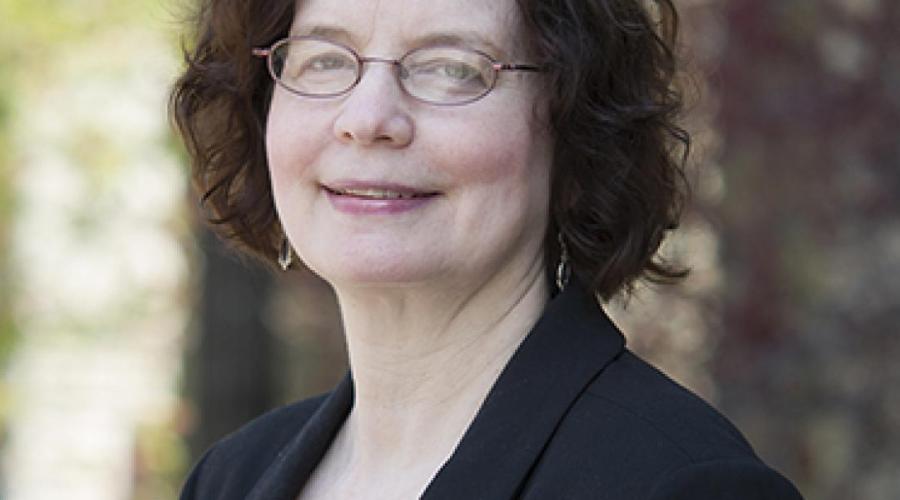
Every moment a teachable moment
After earning a “C” on a paper she wrote as an undergraduate for legendary ILR Professor Milton Konvitz, Kate Bronfenbrenner, Ph.D. ’93, decided to contest the grade.
The assignment focused on the role of Judeo-Christian thought in the U.S. and brought in questions about whether God exists. “I felt his teaching assistant was penalizing me for questioning God’s existence in my answers.”
Upon entering his office, she says, “we spent 30 minutes debating whether there is a God and then, he said “my time is up.”
Konvitz then changed the grade to an “A” and handed back the paper.
Bronfenbrenner said this experience helped shape her philosophy of teaching.
“He could have just changed the grade right away, but he made me do some work in his office that day, and I left a better educated person. I realized that you should use every moment as a teachable moment.”
A senior lecturer and director of labor education research, Bronfenbrenner joined the ILR faculty in 1993, when she also earned her doctorate from Cornell. Courses she took at ILR inspired her, she says, to pursue a career as a community organizer and union representative.
“I realized through these experiences that power in the community is in the workplace.”
Shortly after starting work as a community organizer in Seattle, Wash., Bronfenbrenner was the victim of an assault, which resulted in life-threatening injuries and physical limitations. While she returned to work in the social justice and labor movement for eight years, it became increasingly difficult to continue meeting the day-to-day demands of being an organizer and union representative.
“I knew I still wanted to work in this field, and I knew I had skills in teaching and research, so I made my way back to Ithaca.”
Bronfenbrenner’s research at ILR covers a range of labor, union and collective bargaining issues. Her current areas of focus include trends involving women of color and union organizing, and the impact of unionization on low-income workers.
In all of her research projects, students play an active and critical role. “Early on, I saw a need to get young people excited about research.”
A policy research project led by Bronfenbrenner began in 2006, when she received a call from a staffer of U.S. Sen. Ted Kennedy asking her to do a comprehensive study on organizing that would provide some empirical underpinning for the Employee Free Choice Act.
Bronfenbrenner spent four years working on that project and says there were “10 students involved at all times, and up to 25 or 30 students at one time or another.”
In 2010, building on the data already collected, the study turned its focus to examining how employer behaviors — particularly actions that could be considered unfair labor practices — interfere with the timing of elections aimed at forming a union.
Research provided evidence that more than half of serious employer unfair labor practices during NLRB organizing campaigns occur before representation election petitions are fled. Sixty-nine percent of serious unfair labor practices occurred within two weeks of petitions being fled.
Informed by Bronfenbrenner’s research and congressional testimony, and after making it through many hurdles in the courts and Congress, the NLRB Representation Procedure Rule Change became effective on April 14.
“Our data is the foundation for the ruling. Our students got to be part of something that became policy.”
Having the opportunity to see the real impact of research on policy and labor practice is something that makes the ILR experience meaningful for students, Bronfenbrenner says.
“The experience is also the connection students have with faculty, and that faculty have with their area of study. We are engaged and go into the field. It’s not abstract when faculty teach at ILR, and that makes the subject come alive for students. This makes a huge difference.”
Bronfenbrenner says that the greatest service she provides at Cornell is the time spent mentoring and advising students. Her impact has been recognized with numerous Cornell awards, including the Kendall S. Carpenter Memorial Advising Award, the Robert N. Stern Mentoring Award, and the Merrill Presidential Scholar Outstanding Educator Award, which she has received three times.
In addition to Konvitz, Bronfenbrenner credits her success to ILR professors John Windmuller, Clete Daniel, Ileen DeVault and Harry Katz.
“Windmuller and Daniel challenged me as an older student who had been out in the workplace to build on what I knew and take it to the next level,” she says.
“Harry Katz and Ileen DeVault helped me learn how to take everything I knew and turn it into a research question. That inspired me to think like a scholar, and it was a great gift.”


